Punctuation protest against far right trolls on Twitter
- Published
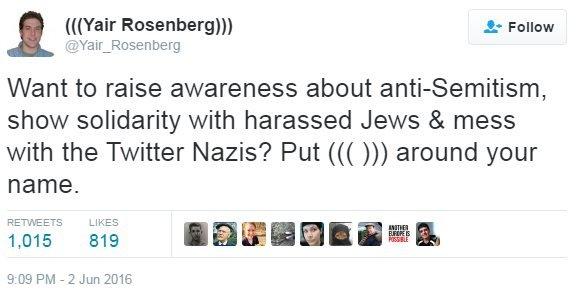
How controversial can a series of parenthesis marks be?
Over the past few days, Twitter users may have noticed an increase in the number of fellow users who have surrounded their names with ((( ))).
The symbols appear harmless enough but have become controversial after an investigation, external revealed that they were being used by a small minority of white supremacists to target Jewish writers with anti-Semitic abuse.
The use of ((( ))), also called "an Echo", have now been re-appropriated by the supporters of Jewish writers to show solidarity. The Anti-Defamation League has also added them to its online database of hate symbols., external
Journalists receive abuse
The problem was first brought to the public's attention by the deputy Washington editor of the New York Times, Jonathan Weisman, external, in May 2016.
He received the cryptic tweet "Hello (((Weisman)))" after he shared a link to a recent article he had written about the emergence of fascism in the United States.
The Twitter account which sent this original message has since been deleted but there is an archived version of the exchange, external.
Weisman found himself deluged with anti-Semitic tweets, external after receiving this "Echo", and he certainly wasn't the only Jewish journalist targeted.
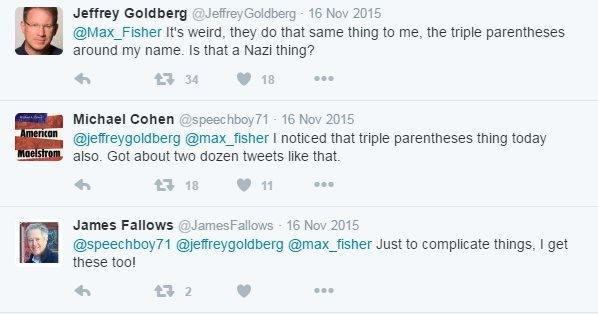
Writers such as Jeffrey Goldberg, external and James Fallows, external from The Atlantic, Max Fisher, external from the New York Times, and the Boston Globe's Michael Cohen , externalstarted to notice these symbols appearing around their names in November 2015.
Columnist Julia Ioffe regularly receives photoshopped images of her head, external superimposed onto Auschwitz detainees, with her name surrounded by ((( ))).
Far Right echoes
The journalists Cooper Fleishman and Anthony Smith, external traced the first use of the symbol to a group of right-wing social media users called "the alt-right".
White supremacist and far-right podcast programmes which support this movement, describe the "(((echo)))" as a visual representation of the fact that "All Jewish surnames echo throughout history".
Their investigation, external claimed that this obscure group of white supremacists were using a Google Chrome extension called "Coincidence Detector", to search social media for Jewish users and then compiling a database of people who they could then target for abuse.
Since the Mic.com, external investigation was published, Google has removed Coincidence Detector from its app store for breaching its terms and conditions on hate speech. Before it was taken down, the extension reportedly had 2,500 users who had generated a list of 8,800 names.
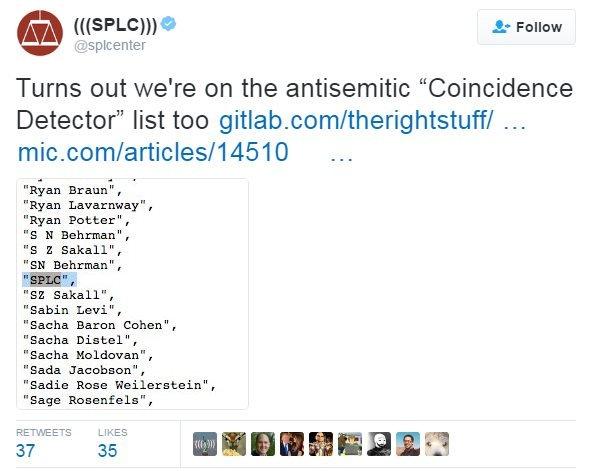
It wasn't just Jewish journalists who were on the Coincidence Detector list: the Southern Poverty Law Centre found its name included on the list.
Jonathan Greenblatt,, external the chief executive of the Anti-Defamation League, an American organisation which monitors fascist and far-right groups online, says that the "echo symbol is the online equivalent of tagging a building with anti-Semitic graffiti or taunting someone verbally. Over the past several weeks, the echo symbol has been used by white supremacists and others as part of a pattern of harassment against a group of journalists."
Solidarity and support
Since social media became aware of Coincidence Detector, many Twitter users have changed their name to include parentheses as a way of showing solidarity, and also disrupting to the effectiveness of the Chrome extension.
This call to action was initiated by Yair Rosenberg,, external a senior writer at the online Jewish magazine the Tablet. "Want to raise awareness about Anti Semitism, harassed Jews and mess with the Twitter Nazis?" he tweeted. "Put ((( ))) around your name". His followers were quick to respond and over the past few days their replies have been shared or liked hundreds of times.


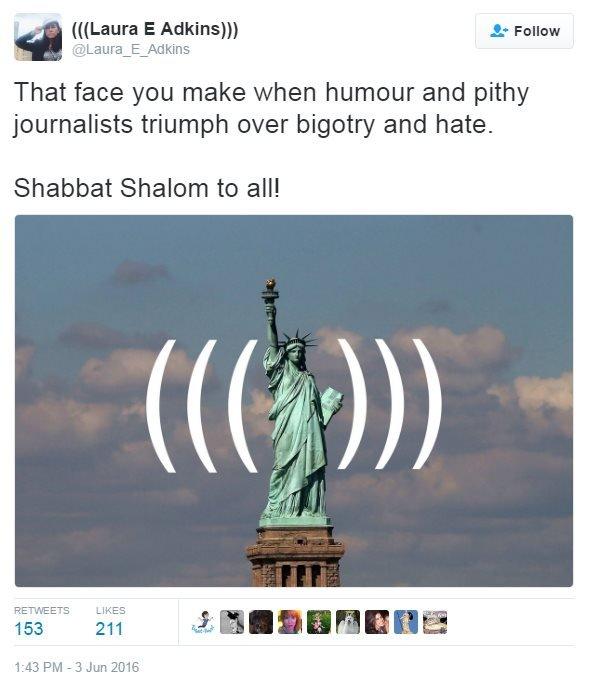
Blog by Hannah Henderson, UGC and Social News
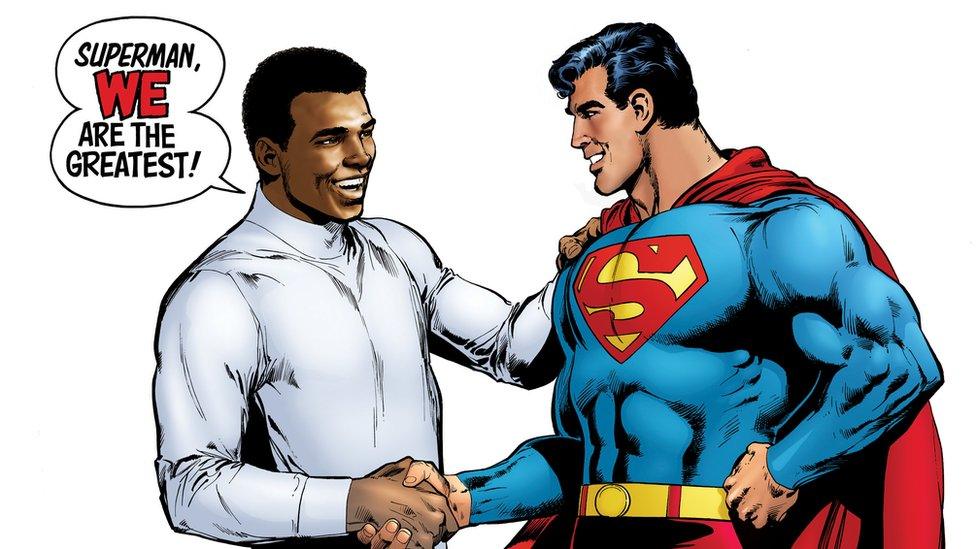
You can follow BBC Trending on Twitter @BBCtrending, external, and find us on Facebook, external. All our stories are at bbc.com/trending.